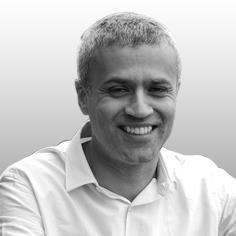As we build new communities and remodel and retrofit existing towns and cities, we should see ourselves as the new front line in health provision

My colleagues at BioRegional, in partnership with the Association for the Conservation of Energy, has just launched a report called ‘Retrofitting the Green Deal’.
It makes a number of recommendations on how the Green Deal energy saving scheme for homes can be changed to increase uptake.
Done well, Green Deal retrofits can increase our quality of life as well as offer protection against fluctuations in energy prices and help tackle fuel poverty.
Insulating our homes can help with health outcomes such as “excess winter deaths” and respiratory problems in children.
The type of places we build or remodel are major factors in determining health outcomes
The health impacts are nicely summarised in a report commissioned by Friends of the Earth and written by Professor Sir Michael Marmot in the Department of Epidemiology and Public Health at UCL.
Our health service costs us currently £137bn a year, almost 20% of government spending or about 10% of GDP.
It is a huge and growing cost to the country, yet diet and lifestyle are now recognised as the key determinants of health.
Our industry can do much more to bring health to the centre of our agenda.
The type of places we build or remodel are major factors in determining health outcomes – not only in terms of well insulated buildings, but in a myriad ways.
Masterplanning influences or even determines how much people walk and cycle rather than drive.
Design of the public realm can promote neighbourliness and reduces the probability of isolation and clinical depression and anxiety states.
Building design can increase access to natural light and tackle Seasonal Affective Disorder and office space can be designed to combat our sedentary lifestyles by encouraging people to use stairs rather than lifts and offer workers the opportunity to stand rather than sit when using computers.
With a background in medical sciences, this has become a hobby horse of mine: as we build new communities and remodel and retrofit existing towns and cities, we should see ourselves as the new front line in health provision.
It could save us a lot of money as well.
If you are interested, you can read more in my book One Planet Communities.
Pooran Desai is co-founder of BioRegional



























3 Readers' comments